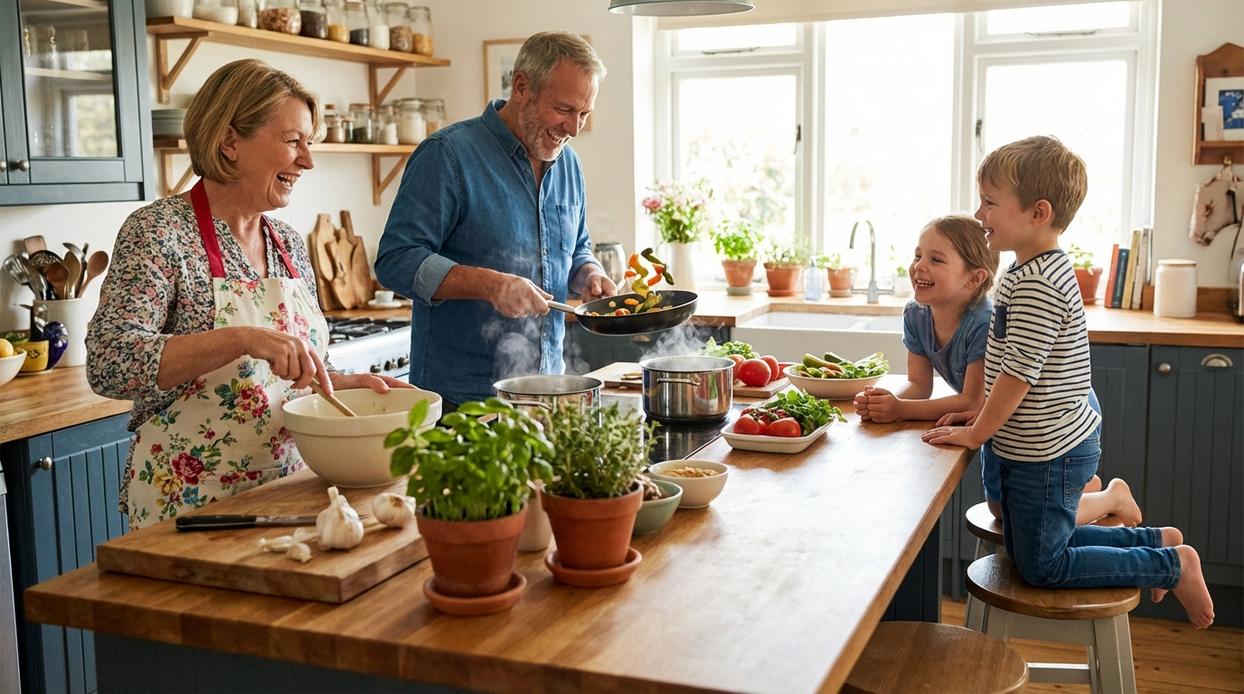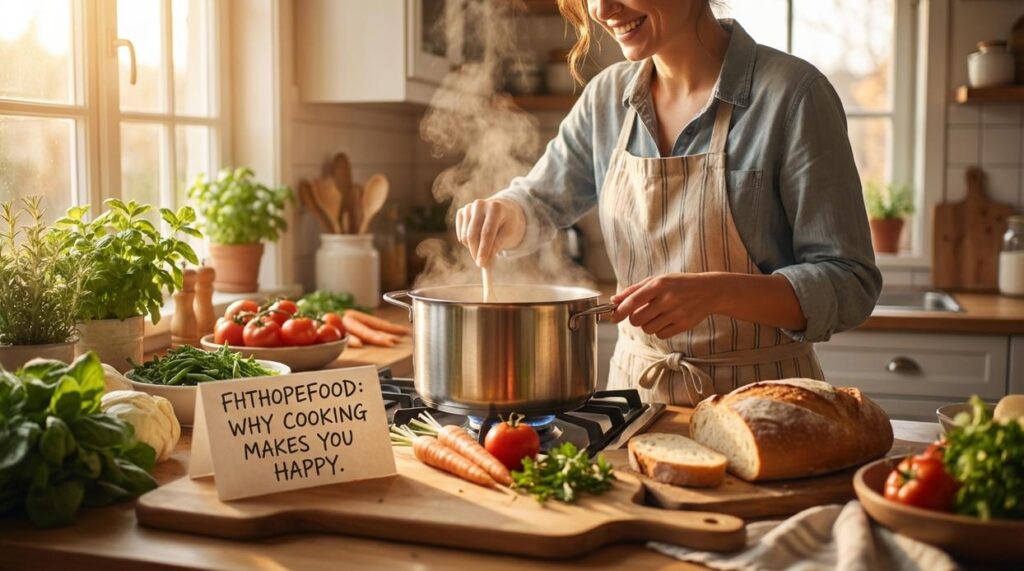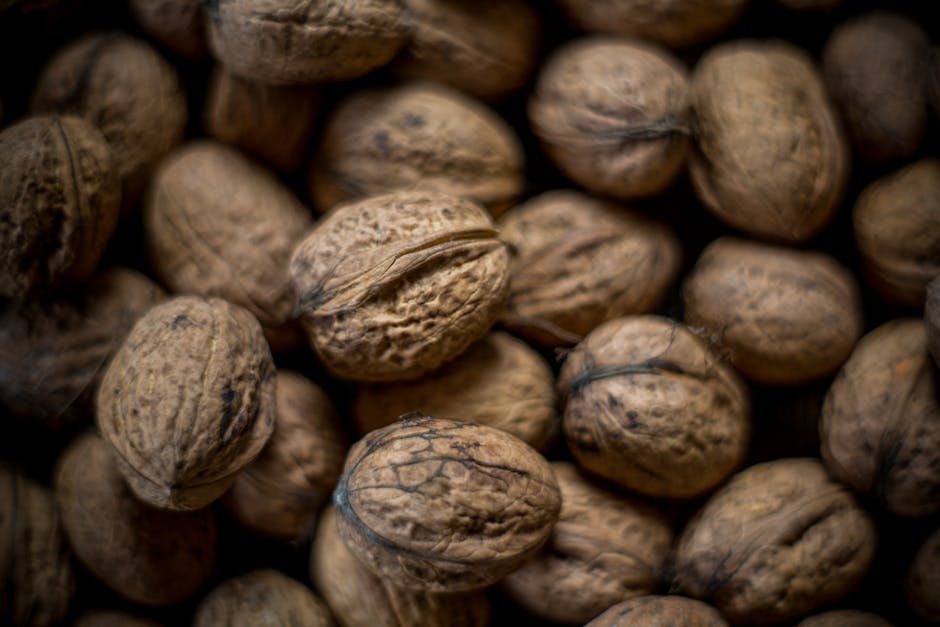I’ve spent years in kitchens and I can tell you this: cooking does something to your brain that scrolling through your phone never will.
You’re probably wondering if standing over a stove can actually make you happier. Not just distract you for 30 minutes, but genuinely improve how you feel.
The answer is yes.
Why cooking makes you happy fhthopefood comes down to how your brain responds when you chop vegetables, stir a sauce, or pull something warm from the oven. It’s not about making Instagram-worthy meals. It’s about what happens inside your head during the process.
I’ve researched behavioral psychology and culinary therapy to understand why some people find real peace in the kitchen while others just see it as a chore. The difference isn’t about cooking skill. It’s about approach.
This article will show you how cooking works as a tool for your mental health. You’ll see why the simple act of preparing food can reduce your anxiety and give you something most of us are missing: a sense of accomplishment that you can taste.
We’re living in a time when stress is constant and screens are everywhere. You need something tangible to ground you.
Cooking might be that thing. Let me show you why it works.
The Kitchen as a Sanctuary: Finding Mindfulness in the Mix
You can sit on a cushion and try to meditate.
Or you can just make dinner.
I’m not saying meditation doesn’t work. It does. But a lot of people struggle with it. They sit there, close their eyes, and their brain goes wild. Every thought they’ve ever had shows up for a party.
The kitchen is different.
When you’re chopping onions, you’re chopping onions. Your mind can’t wander to that email you forgot to send because if it does, you might lose a fingertip. (Not the best motivator, but it works.)
Here’s what most people miss about why cooking makes you happy fhthopefood.
It’s not just about the food. It’s about what happens to your brain while you’re making it.
Think about the last time you kneaded bread dough. The push and fold. The way the texture changes under your hands. The smell of yeast waking up.
You weren’t thinking about your to-do list. You were just there.
That’s mindfulness. But nobody calls it that because you’re covered in flour instead of sitting cross-legged on a yoga mat.
The sensory stuff matters more than you’d think.
The sizzle when garlic hits hot oil. The way fresh basil smells when you tear it. The weight of a good knife in your hand.
These aren’t just nice details. They’re anchors. They pull you into the present moment because your senses are fully engaged. You can’t be somewhere else when your entire body is paying attention.
Mindfulness-based stress reduction programs teach this exact technique. They just don’t usually involve making pasta.
Repetitive tasks are where the magic happens.
Whisking eggs until they’re frothy. Stirring risotto for twenty minutes straight. Chopping a pile of vegetables into perfect dice.
Your hands know what to do. Your mind can finally quiet down.
It’s the same flow state that runners talk about. That zone where time disappears and you’re just moving. Except you end up with dinner instead of sore knees.
Want to try this yourself?
Pick something simple with a repetitive element. Risotto works great because it demands constant attention and stirring. No phone. No podcast. No background TV.
Just you and the pan.
Focus on what you’re sensing. The smell of the broth. The sound of the spoon against the pot. The way the rice slowly transforms from hard to creamy.
That’s it. That’s the whole practice.
Some days your kitchen might be the most peaceful place you visit. Not because it’s quiet, but because it’s the only place where you’re actually present.
Unleash Your Inner Artist: Cooking as a Vehicle for Creativity and Self-Expression
I burned my first attempt at carbonara so badly that my roommate thought I was trying to make charcoal.
But here’s what surprised me. I wasn’t mad. I was curious.
What if I used less heat next time? What if I added the eggs off the stove instead?
That’s when I realized something. Cooking isn’t just about following instructions. It’s one of the few creative outlets where you get a framework to start with and permission to mess around.
Beyond the Recipe
You know what I love about cooking? There’s no blank canvas staring you down.
A recipe gives you the bones. You bring the rest.
Compare that to painting or writing. You sit down to a completely empty space and have to pull something out of thin air. That pressure kills creativity before it even starts.
But with cooking? You’ve got a starting point. And that makes all the difference.
The Joy of Improvisation
Last Tuesday I was making pasta and realized I was out of basil. So I threw in some mint instead.
Was it traditional? No. Did it work? Absolutely.
That’s the beauty of substituting ingredients or adding a new spice. You’re solving a problem in real time. You’re making decisions based on what you have and what sounds good to you.
This kind of improvisation builds what researchers call cognitive flexibility (the ability to adapt your thinking when situations change). And it happens naturally while you’re just trying to figure out dinner.
Even changing how you plate a dish is creative expression. I started arranging my food differently after watching too many cooking shows. It felt silly at first. But now? It’s why cooking makes you happy fhthopefood.
Building Creative Confidence

Here’s something nobody tells you about creativity.
You need wins. Small ones. Regular ones.
When you successfully tweak a recipe and it tastes better than the original? That’s a tangible creative win. You made something. You improved it. You can taste the proof.
That confidence doesn’t stay in the kitchen. It spills over. You start thinking maybe you can adjust that work presentation. Maybe you can rearrange your living room. Maybe you’re more creative than you thought.
Pro tip: Master one simple base recipe first. I recommend a basic tomato sauce or vinaigrette. Make it until you can do it without looking at measurements.
Then experiment. Add one new ingredient each time you make it. Smoked paprika one week. A splash of balsamic the next. Fresh oregano after that.
You’ll be amazed at how many variations you can create from one foundation.
The Competence Boost: Gaining a Sense of Accomplishment and Control
Think about your job for a second.
You send an email. It sits in someone’s inbox. Maybe they respond next week. Maybe never.
You finish a project. It goes through three rounds of review. The results? You’ll find out in Q4.
Most of what we do feels like tossing messages in bottles into the ocean.
Now compare that to cooking.
You chop an onion. It sizzles in the pan. Thirty minutes later, you’re eating dinner.
From Ingredients to Achievement
This is what I love about cooking. It’s like building with Legos instead of filing paperwork. You see exactly what you’re making as you make it.
You start with raw ingredients scattered on your counter. You end with a finished meal on your plate. The whole process takes maybe an hour.
That direct line between effort and result? It does something to your brain. It reminds you that you can actually create things. That your actions matter.
I’ve talked to people who feel stuck in their lives. They work hard but never see the payoff. Cooking gives them back that sense of control (even if it’s just over what’s for dinner).
The Path to Mastery
Here’s where it gets better.
Every time you cook, you get a little sharper. Your knife cuts get cleaner. Your timing improves. You stop burning the garlic.
It’s the same reason people get hooked on learning guitar or woodworking. You can feel yourself getting better. And that feeling? That’s why cooking makes you happy fhthopefood.
Some people say you don’t need to master cooking to enjoy it. Just throw something together and eat it. Why stress about technique?
But I think they’re missing the point. The satisfaction doesn’t come from perfection. It comes from progress. From knowing you made something better today than you did last month.
Pro tip: Take a photo of your finished meal before you dig in. It sounds simple, but seeing what you created helps your brain register the accomplishment. Plus, you’ll have a record of how far you’ve come.
Food as a Love Language: Fostering Connection and Nurturing Others
You know what drives me crazy?
When people treat cooking like it’s just another chore on the list. Something to get through so they can move on to the next thing.
I see it all the time. Someone throws together a meal, barely looks up from their phone, and wonders why dinner feels empty.
Here’s what they’re missing.
Cooking for someone isn’t about the food. It’s about what the food represents.
When you make a meal for another person, you’re saying something without words. You’re telling them they matter enough for you to spend your time and energy on them.
Why Cooking Makes You Happy
There’s real science behind this. When you cook for others, your brain releases the same feel-good chemicals as when you receive a gift (turns out giving actually does feel better than getting).
But beyond the biology, there’s something simpler at play.
Watching someone enjoy what you made? That hits different.
Three Ways Food Builds Real Connection
-
It creates space for conversation. When you sit down to a home-cooked meal, phones tend to go down. People actually talk. You’d be surprised how rare that’s become.
-
It carries your history forward. Making your grandmother’s recipe isn’t just cooking. It’s keeping a piece of her alive. It’s showing your kids where they come from.
-
It says what words can’t. Sometimes “I love you” feels awkward or insufficient. A pot of soup when someone’s sick? That speaks volumes.
Try this. Pick someone in your life and cook them a meal this week. Not for a birthday or holiday. Just because.
Don’t overthink it. The meal doesn’t need to be fancy.
What matters is the intention behind it.
Practical Steps to Start Your Culinary Wellness Journey
You don’t need to become a chef overnight.
I started with scrambled eggs. That’s it. Three ingredients and about five minutes of my time.
Here’s what actually works.
Start Small
Pick one simple recipe. Make it once this week.
I’m talking about quick healthy recipes fhthopefood that use five ingredients or less. After a month of cooking just one meal a week, you’ll notice something shift. The kitchen stops feeling like enemy territory.
Some people say you need to meal prep everything on Sundays or you’re doing it wrong. But that’s exactly why cooking makes you happy fhthopefood when you approach it differently.
Make it pleasant:
- Put on music you actually like
- Clear your counters before you start
- Think of it as your time, not another task
I learned this the hard way. For years, I’d rush through cooking while mentally planning my next ten tasks. No wonder it felt like a chore.
Plan Just Enough
Pick two meals for the week. Write them down.
That’s it. Not seven. Not every breakfast and snack. Just two dinners.
When I stopped trying to plan everything, the decision fatigue disappeared. I knew Tuesday meant chicken and vegetables. Thursday was pasta with greens. The rest? I figured it out as I went.
You’ll cook more when it doesn’t feel like homework.
Your Prescription for Wellbeing is in Your Kitchen
I’ve shown you that cooking is more than just a chore.
It’s a real way to improve your mental and emotional health. You don’t need expensive therapy sessions or complicated wellness programs.
You’re dealing with stress every day. Anxiety creeps in. Creative blocks stop you cold.
But when you change how you see your kitchen, everything shifts. You’re not just making dinner anymore. You’re actively fighting back against the weight of daily life.
The simple act of preparing food gives you something reliable. You get creativity when you need it. You feel accomplished when you finish. You connect with yourself and others through what you make.
Here’s what I want you to do: Pick one recipe that excites you this week.
Don’t worry about making it perfect. Just focus on the process. Pay attention to how it feels to chop vegetables or smell garlic hitting hot oil.
Why cooking makes you happy fhthopefood is simple. It grounds you in the present moment and gives you control when everything else feels chaotic.
The joy is already there waiting for you. You just need to start.



